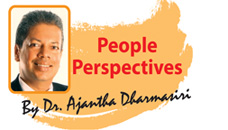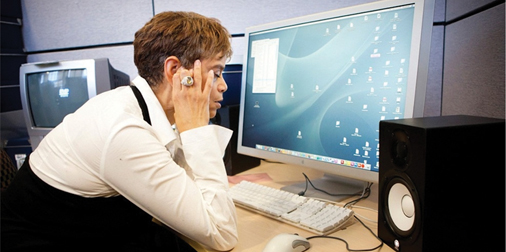Effects of presenteeism, a path worth exploring
 We talk more about absenteeism. A new research trend has emerged to
look into the opposite of it. There are confusing definitions and
complicated diagnostics yet the path is worth exploring. We talk more about absenteeism. A new research trend has emerged to
look into the opposite of it. There are confusing definitions and
complicated diagnostics yet the path is worth exploring.
Absenteeism, generally defined as not showing up for work, has a long
research history. This is mainly because of its perennial cost to
organisations. However, it is only recently that presenteeism has become
a subject of interest.
Although there is some definitional confusion, the most recent
scholarly conception of presenteeism involves showing up for work when
one is ill.
Excitement concerning the subject has been fuelled by claims that
working while ill, causes much more aggregate productivity loss than
absenteeism and by the idea that managing presenteeism effectively could
be a distinct source of competitive advantage.
Diverse
In one approach, presentees are people who are 'at work, but not
working', at least not up to their full capacity. In sum, the British
and Europeans have been mainly interested in the frequency of the act of
presenteeism as a reflection of job insecurity and other occupational
characteristics and the Americans, in the productivity consequences of
this behaviour as a function of various illnesses while ignoring the
causes of showing up ill. Both lines of inquiry are legitimate, yet
diverse in their approaches.
In medicine, pharmaceutical and other medical interventions have
traditionally been evaluated in terms of two health-focused criteria,
medical efficacy and safety.
In recent years, however, the increasing cost of healthcare, combined
with the provision by employers of employee health plans, has led to a
third criterion of interest, economic impact.
 Accordingly, employee health costs to an employer include the direct
cost of any health plan, costs due to employee absenteeism and costs due
to reduced productivity among presentees not working at full capacity. Accordingly, employee health costs to an employer include the direct
cost of any health plan, costs due to employee absenteeism and costs due
to reduced productivity among presentees not working at full capacity.
Statistics
According to the Oxford English Dictionary Online, the term presentee
was first used by the American author Mark Twain in his humorous 1892
book, The American Claimant. Later, presenteeism made occasional
appearances in business-related periodicals, including Everybody's
Business (1931), the National Liquor Review (1943), and Contemporary
Unionism (1948).
In all of these early uses and through the 1970s, the term was
clearly meant either to be the literal antonym of absenteeism, or to
connote excellent attendance.
There are some interesting statistics available in the Swedish scene.
Aronsson and colleagues in 2005 included an additional item in the
Swedish labour-market survey as follows: "Has it happened over the
previous 12 months that you have gone to work despite feeling that you
really should have taken sick leave because of your state of health?"
The response format consisted of never, once, two to five times, or
over five times, in line with their previous study. In the earlier
Aronsson study, 37 per cent of respondents reported attending work while
sick more than once.
In the later Aronsson study, 53 percent made the same declaration (38
percent two to five times and 15 percent more than five times). The
reason for this increase is not clear but probably attributed to the
accelerated change in workplaces.
Interesting research findings are available on the Australian scene.
In 2007, Medibank commissioned Econtech to identify the costs and
impacts of presenteeism on the Australian workforce and economy. This
landmark report and study revealed that in 2005-6 the cost of
presenteeism to the economy was estimated at Australian dollars 25.7
billion, nearly four times the cost of absenteeism.
Productivity
The overall cost of presenteeism to the Australian economy in 2009-10
was Australian $ 34.1 billion. This equates to a decrease in gross
domestic product (GDP) of 2.7 percent compared to the'no presenteeism'
scenario. Private consumption - household spending on all goods and
services - which accounts for 76 percent of total consumption in
Australia - decreased by 3.3 percent (Australian Dollar 22.6 billion)
due to presenteeism.
The negative impact of labour productivity losses due to presenteeism
flows throughout the economy, leading to a general reduction in levels
of exports, imports and investments.
Indeed, compared to the 'no presenteeism' scenario, exports are lower
by 2.7 percent ($8.2 billion) whilst imports are reduced by 2.1% ($6.0
billion). Investment is lower by 2.6 percent ($5.0 billion). This
further illustrates the effects on the Australian trade balance,which
decreases due to the fact that the decrease in exports is relatively
higher than the decrease in imports.
To my knowledge, there has no proper study done on the effects of
presenteeism in Sri Lanka. This opens up an opportunity to explore and
assess the true situation here. I have come across employees in a
variety of disciplines who complain of the inability to take leave when
they want, because of the shortage of people.
This is in the context of some organisations preferring to pay
overtime and use a smaller workforce than deploying the actual number
needed. The end result is whether the person likes it or not, he or she
has to report to work, while the excessive overtime payments act like
'carrots'.
One phenomenon I have clearly seen in some Sri Lankan workplaces is
that employees being physically present, but being mentally and
emotionally absent.
Their bodies are at work but the heads and hearts are elsewhere. It
can be a symptom of a deep rooted cause, revolving around presenteeism. |

